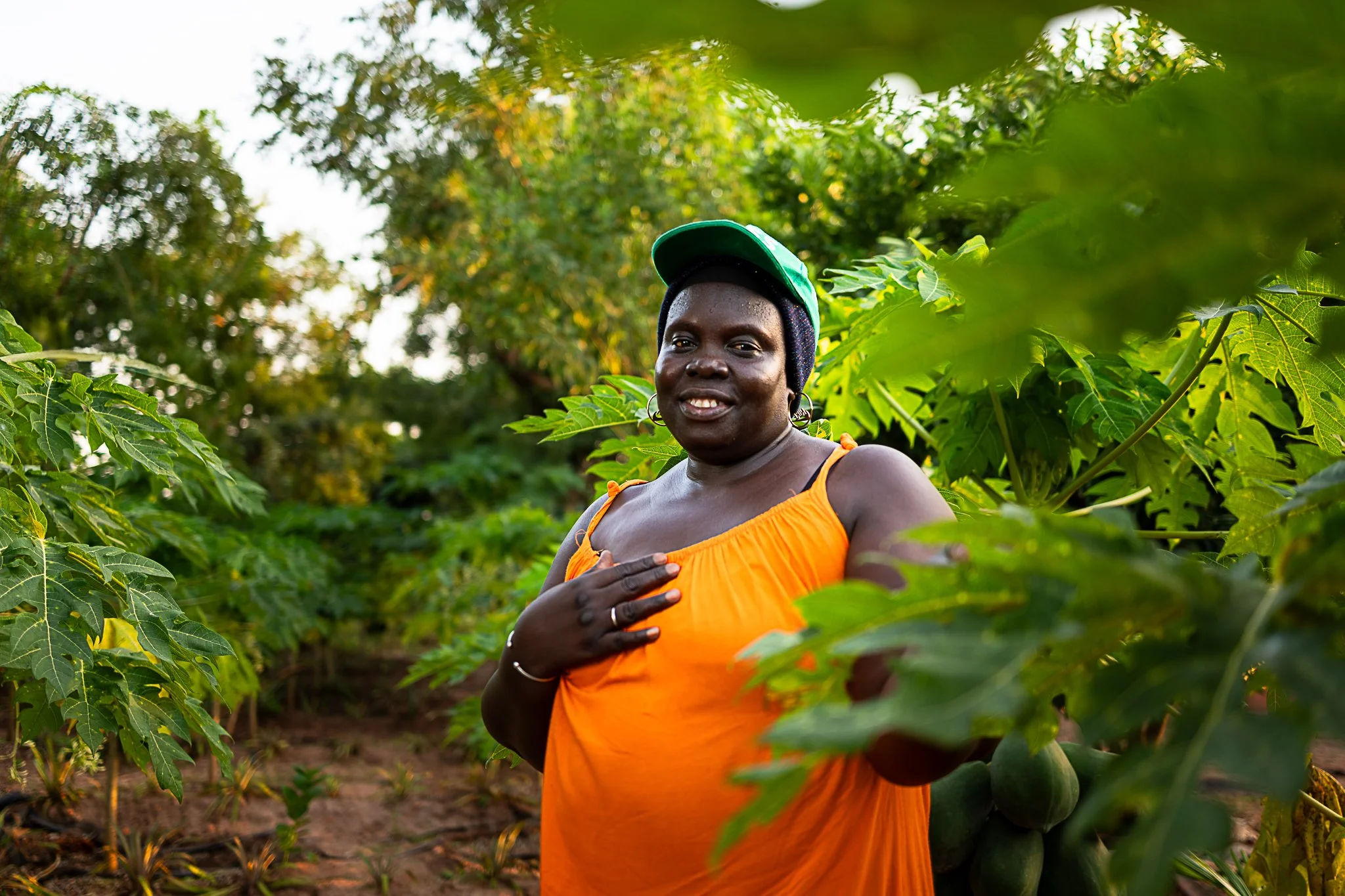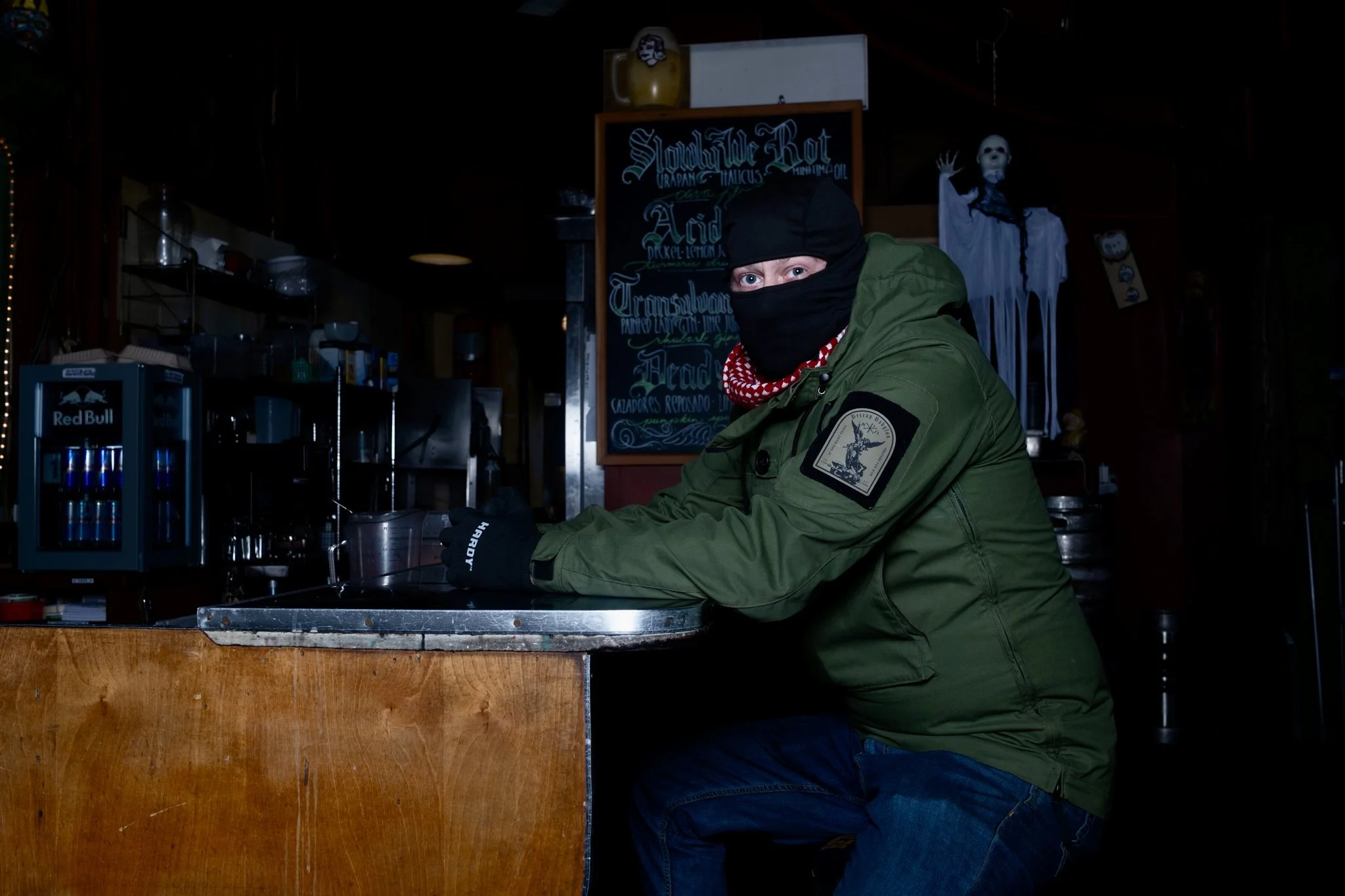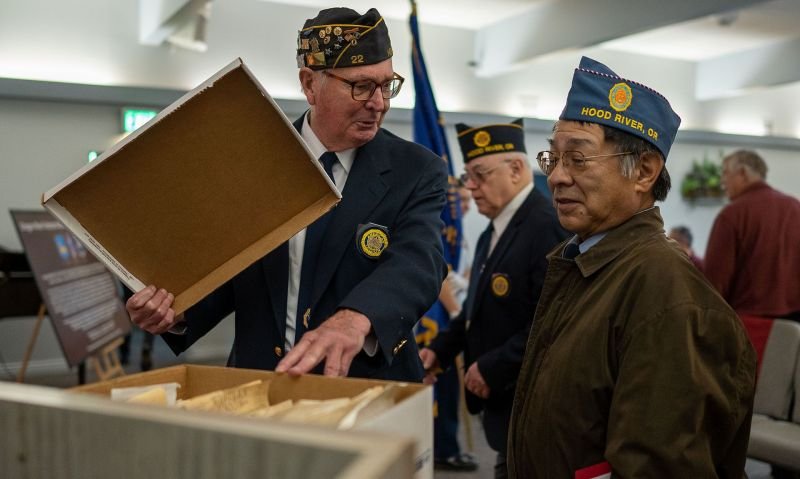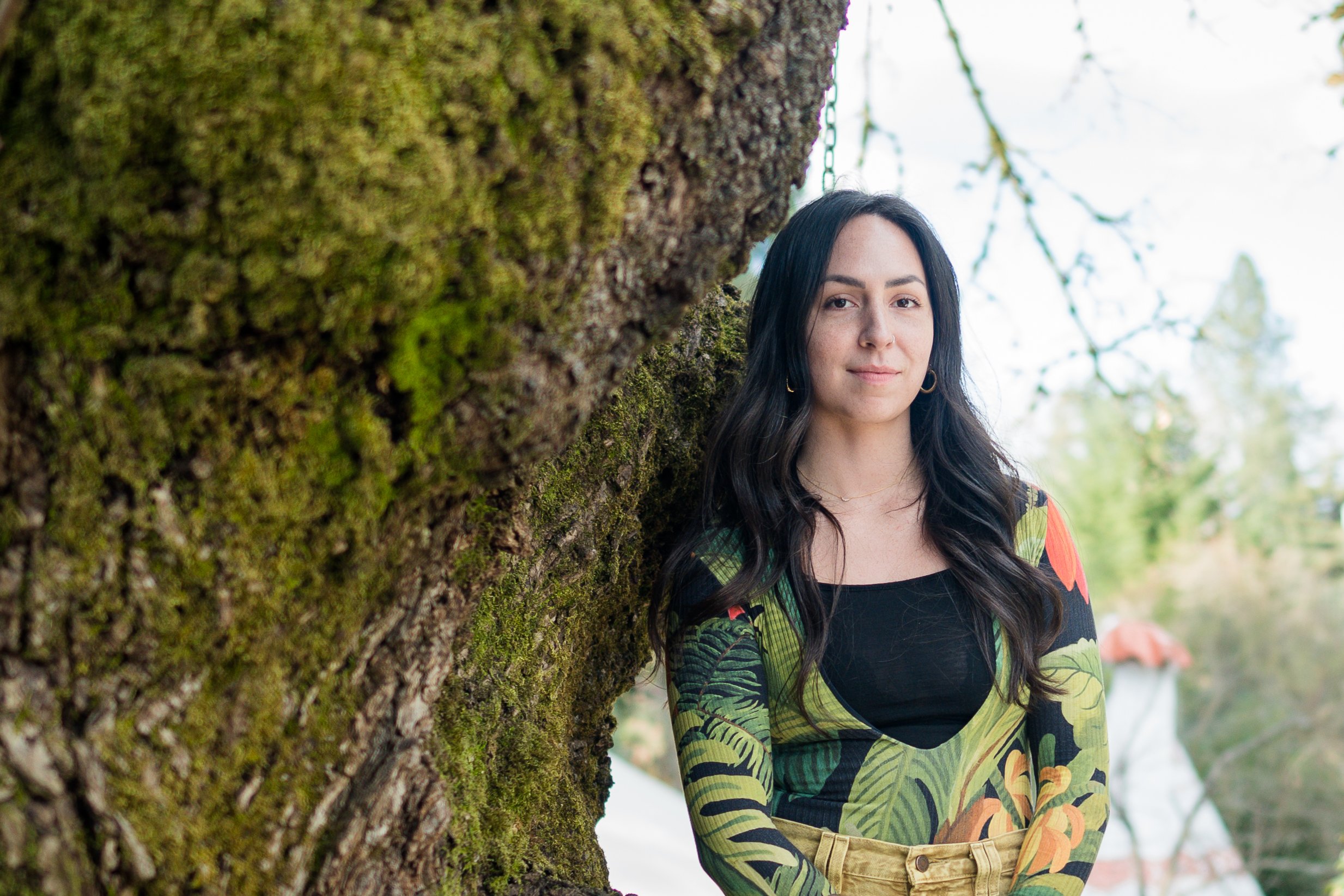Editorial Assignments
-
![A young woman and an older woman standing outdoors in front of green foliage. The young woman wears a brown hoodie with botanical and butterfly design. The older woman wears a white blouse with small black floral pattern. Both women have curly hair and are looking at the camera.]()
A chronic polluter closes its doors. What’s next? | High Country News
For this editorial assignment, I documented environmental justice advocates in West Eugene, where residents living near toxic industrial sites are experiencing elevated rates of illness. While state officials say health assessments cannot confirm the cause of local cancers, community members believe long-term chemical exposure is making families — including children — sick, and they question why change has come so slowly compared with wealthier neighborhoods.
-
![Two people in a purple kayak paddling near large icebergs in a cold, cloudy environment.]()
Healing Our Waters With Kelp | Photographers Without Borders
For this editorial assignment with Photographers Without Borders, I produced “Healing Our Waters with Kelp: Indigenous Futurist Solutions for Mother Earth,” documenting the Native Conservancy’s Kelp initiative in Alaska. The photo essay follows Indigenous stewards working to restore ancestral waters and ecosystems through kelp cultivation and regenerative practices, highlighting how these community-driven solutions address climate change, food sovereignty, and cultural resilience in the wake of environmental devastation.
-
![A man with curly hair and a beard sitting in an armchair in front of a bookshelf, smiling at the camera.]()
The internet’s funniest doctor is in on the joke | STAT & The Boston Journal
For this editorial assignment, I photographed Dr. Glaucomflecken creator Will Flanary, whose sharp satire of American health care has attracted more than 2.5 million followers across TikTok, YouTube, and Twitter. Through short skits and recurring characters, Flanary exposes the absurdities of the U.S. medical system with a specificity that resonates deeply with clinicians and patients alike. My portraits accompanied the story on his rapid rise and the growing cultural impact of his comedy.
-
![A float with Indigenous-themed art and greenery in front of a red building with white lettering reading "THE REDD ON SALMON STREET" under a partly cloudy sky.]()
Tribal Members Use Totem Poles to Raise Alarm on Salmon Extinction | Earth Justice
For this editorial assignment, I was commissioned by Earthjustice to document a landmark event and create portraits related to the movement to restore the lower Snake River. For more than two decades, Earthjustice has pushed the federal government to remove dams whose costs to salmon and Native communities have become unsupportable. This effort is part of a broader campaign to revive salmon populations, protect orcas, and advance justice for Northwest tribes.
-
![A woman wearing an orange dress and a green cap standing in a lush green garden with papaya plants.]()
Women Growing The Future | Thousand Currents
I produced the photo essay “Women Growing the Future” for Thousand Currents, documenting women farmers across West Africa reclaiming agroecological traditions and leading food‑sovereignty efforts through the movement Nous Sommes la Solution (We Are the Solution). The work highlights how rural women are restoring ancestral practices, strengthening local food systems, and building resilience in the face of industrial farming’s impacts, positioning women at the forefront of ecological and community‑led transformation.
-
![A person wearing a green jacket, black face covering, and red bandana with white dots sitting at a bar counter in a dimly lit bar or restaurant.]()
Militant, vernetzt und erfolgreich | WOZ (Switzerland)
This editorial assignment with WOZ, a Swiss newspaper, was created with photo editor Ursula Häne and journalist Lukas Tobler, who explores Portland’s antifascist movement through activists “Zeina,” “Time,” “Paul,” and “Switch.” Tracing its roots to the 1988 murder of Mulugeta Seraw, the movement—including Rose City Antifa—continues to oppose racism, fascism, and state violence, exemplified by Portland’s protests against ICE.
-
![A woman with gray hair wearing a black hat and pink sweater is outdoors surrounded by greenery. She appears to be pointing or gesturing while looking intently at something.]()
Rooted Leadership | RENAF
I produced a photo essay on RENAF, a peasant-led network in the Andean highlands where land, memory, and resilience are deeply intertwined. Through agroecology, ancestral knowledge, community organizing, and policy advocacy, RENAF strengthens local food systems and cultivates sovereignty from the soil up. Nearly 90% of its member associations are formally established and led by Aymara and Quechua women, who guide their communities with care, strength, and collective purpose, building an alternative ecosystem where governance is shared, seeds are sacred, and the future is something they grow.
-
![Veterans in uniform and civilian clothing examining a box of remains at a memorial or commemorative event.]()
Oregon Legion post apologizes for past mistakes | American Legion
For this editorial assignment, I documented a ceremony at the Anderson Tribute Center where members of Post 22 gathered with the community to acknowledge and apologize for past discriminatory actions against Japanese American World War II veterans. The event honored the descendants of those who were wronged and sought to recognize their service and dignity long overlooked.
-
![A woman with long dark hair wearing a black top with a colorful leafy pattern and mustard-colored pants, leaning against a moss-covered tree outdoors with blurred trees and sky in the background.]()
‘It’s not medical’: Oregon wrestles with how to offer psychedelics outside the health care system | STAT & Boston Journal
For this editorial assignment with STAT, I photographed people involved in Portland’s emerging psychedelic ecosystem as Oregon became the first state to legalize psilocybin outside the traditional health-care system. The story explored how Measure 109 created a non-medical regulatory framework for magic mushrooms, the debates over training, access, and equity, and how local businesses and facilitators are shaping this historic shift in mental health and wellness culture.
-
Indigenous peoples fight schemes to buy and sell their land in the name of a climate change ‘solution.’ | The Progressive
For this editorial photo essay with The Progressive, I documented frontline resistance to REDD+ carbon offset schemes at the Global Climate Action Summit in California. My images captured Indigenous leaders and community organizers blocking the summit entrance to call out market-based climate solutions and highlight how programs like REDD+ risk commodifying tribal lands and perpetuating environmental injustice.
-
Sowing Resistance, Nurturing Solutions | Thousand Currents
“We are working to create a new society based on human rights, indivisible, and interrelated.”
As Indigenous communities and smallholder farmers in Africa, and Kenya specifically, absorb the costs of the climate crisis, they work to resist, reform, and build alternatives to the nuanced crises which threaten their autonomy, food sovereignty, health and ecosystems.
-
![A person wearing a patterned shirt and a colorful headscarf stands outdoors, looking at green mountains and a cloudy sky.]()
Our Land, Our Future | Thousand Currents
As Photographer-In-Residence with Thousand Currents, I produced a photo essay documenting AMAN, one of Indonesia’s Indigenous networks and their stewardship of the world’s third-largest rainforest. The work highlights how 50–70 million Indigenous Peoples have sustainably managed these biodiverse lands for generations, preserving ecosystems and cultural practices, while facing increasing threats from deforestation and extractive industries that jeopardize both the forest and their way of life.












